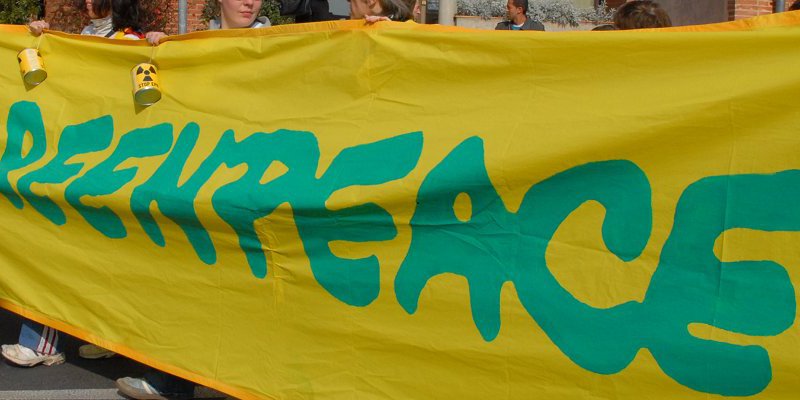-

FBI claims roots of Puerto Rico terrorism lie in the U.S.’ own foreign policy
In early 1983, FBI agent Don Levy went to the CIA’s Polygraph Training School to deliver a speech on “Terrorism in the U.S.,” with a large focus on violent unrest in Puerto Rico. A copy of the speech, released through CREST, gives us new insight into the history of FBI’s counterterrorism views and approaches - recognizing the U.S.’ role in fostering terrorism, if not its responsibility.
-

Homeland Security downplays threat of domestic terrorism
Despite the larger number of terror attacks committed by right-wing groups than Islamist extremists, the former are identified as a “persistent but largely limited threat” in a 2015 presentation by Homeland Security.
-

FBI files on Greenpeace paint activism as a crime
As we’ve written about before, the FBI’s classification of “economic disruption” as a form of terrorism comes dangerously close to criminalizing activism. Never is that more clear than in their files on the international environmentalist organization Greenpeace, which was labeled a terror threat despite tactics that typically involve launching a protest with some fairy wings, a toilet-shaped dunk tank, and some pointed questions.
-

2008 report warned of MySpace and Second Life as jihadist recruitment tools
Terrorism analysts have noted how savvy the Islamic State is on social media. The White House and think tanks alike point to Twitter support for ISIS as a key metric for the group’s strength. Similar worries once swirled around MySpace and Second Life as platforms for recruiting homegrown jihadists.
-

Bitcoin is a potential tool for terrorists, FBI warns in 2012 report
Back in 2012, MuckRock user Runa Sandvik requested FBI reports relating to Bitcoin and the anonymous online marketplace The Silk Road. Not quite three years later, heavily-redacted copies of those reports have been released, warning of “extremists” using the cryptocurrency “to conduct nefarious financial transactions.”
-

What you’ve found in the FBI’s Madrid file so far
The FBI’s file on the 2004 Madrid train bombings is massive, so we’ve asked for help in digesting them. Here’s some of the most interesting finds in the 3,853 pages.
-

Help MuckRock scour FBI’s Madrid train bombing files
The FBI has released 3,853 pages on the March 2004 Madrid train bombing. Root around them yourself and tell us what you dig up!
-

The McVeigh file: Scoring the interview
Timothy McVeigh’s federal 1,800-page Bureau of Prisons file, released to user Jason Smathers after a two-year wait, reveals how far journalists would go to put the Oklahoma City bomber in front of an audience.
-

Timothy McVeigh: Inside the mind of a bomber
What drives a terrorist bomber? Files requested by MuckRock user Jason Smathers shed light on the psyche of another bomber: Timothy McVeigh, convicted for the Oklahoma City Bombing which killed 168 people and injured more than 800.